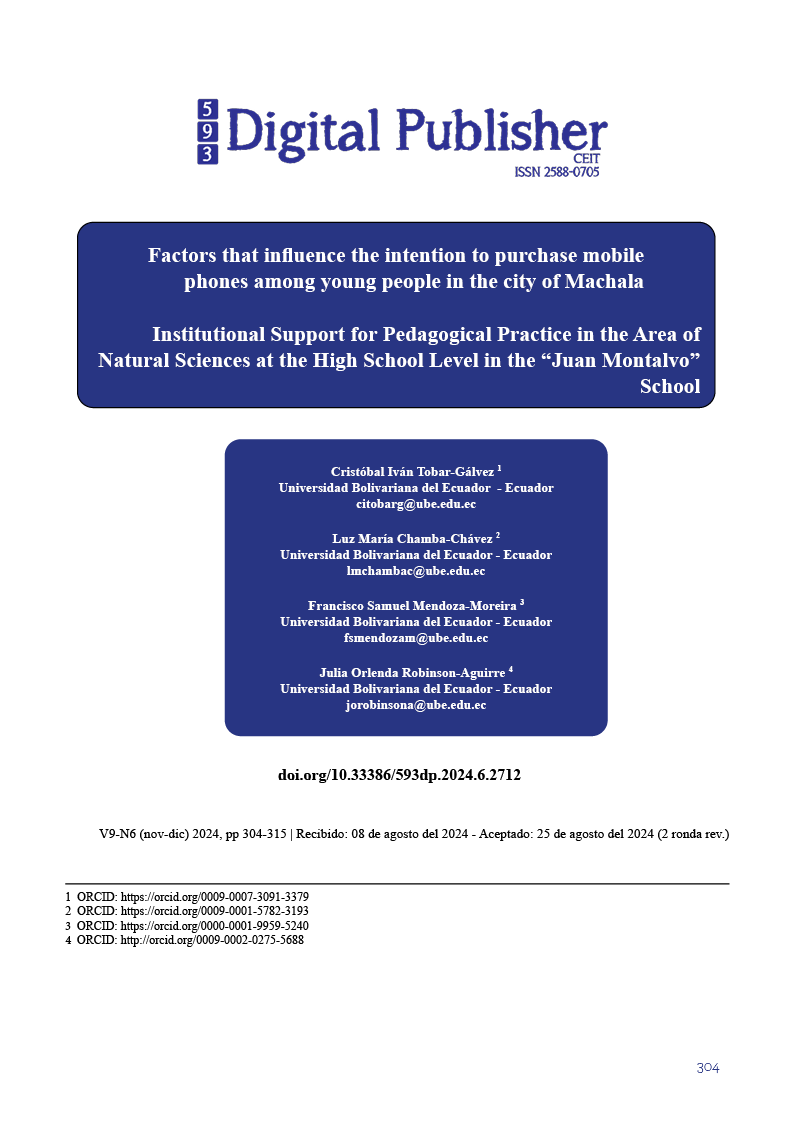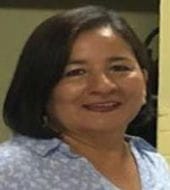Institutional Support for Pedagogical Practice in the Area of Natural Sciences at the High School Level in the “Juan Montalvo” School
Main Article Content
Abstract
In the current educational context, institutional support for pedagogical practice has gained significant relevance at the high school level. This study focuses on the "Juan Montalvo" Public Educational Unit in Ecuador, where a lack of adequate support in pedagogical practice has been observed, affecting teachers' professional development and educational quality. A qualitative phenomenological approach was employed to explore the experiences of six Natural Sciences teachers. Data were collected through biographical narrative interviews, centered on the participants' life histories, their experiences with pedagogical support, and their perceptions of its impact on their teaching practice, while observing ethical and normative considerations. The interviews revealed that teachers face significant challenges due to inadequate institutional support. The results indicate that, although some teachers have received support from colleagues and administrators, most have had to manage their professional development independently. The lack of systematic and continuous support negatively affects teachers' confidence and performance. The research highlights the need for comprehensive pedagogical support that includes administrative guidance, emotional and professional support, and continuous development opportunities. The findings align with previous studies that emphasize the importance of role models and mentors in teacher training. This calls for the implementation of policies that strengthen institutional support, ensuring constant supervision and constructive feedback to improve educational quality and teachers' professional development.
Downloads
Article Details

This work is licensed under a Creative Commons Attribution-NonCommercial-ShareAlike 4.0 International License.
1. Derechos de autor
Las obras que se publican en 593 Digital Publisher CEIT están sujetas a los siguientes términos:
1.1. 593 Digital Publisher CEIT, conserva los derechos patrimoniales (copyright) de las obras publicadas, favorece y permite la reutilización de las mismas bajo la licencia Licencia Creative Commons 4.0 de Reconocimiento-NoComercial-CompartirIgual 4.0, por lo cual se pueden copiar, usar, difundir, transmitir y exponer públicamente, siempre que:
1.1.a. Se cite la autoría y fuente original de su publicación (revista, editorial, URL).
1.1.b. No se usen para fines comerciales u onerosos.
1.1.c. Se mencione la existencia y especificaciones de esta licencia de uso.
References
Aracely, Z., & Oliva, M. (2020). Acompañamiento pedagógico una alternativa para mejorar el desempeño docente.
Basurto-Mendoza, S., Moreira-Cedeño, J. A., Velásquez-Espinales, A., & Rodríguez-Gamez, M. (2021). Autoevaluación, coevaluación y heteroevaluación como enfoque innovador en la práctica pedagógica y su efecto en el proceso de enseñanza- aprendizaje. Polo del conocimiento, 6(3), 828–845.
Branda, S., & Porta, L. (2012). Maestros que marcan. Profesorado, 16 N°3, 231–243. http://www.ugr.es/local/recfpro/rev163COL2.pdf
Darling-Hammond, L. (2000). Teacher Quality and Student Achievement: A Review of State Policy Evidence.
Denzin, N., & Lincoln, Y. (2011). El campo de la investigación cualitativa Manual de investigación cualitativa Vol. I. En Introducción general La investigación cualitativa como disciplina y como práctica.
Fullan, M. (2019). Liderar los aprendizajes: acciones concretas en pos de la mejora escolar (Leading learning: concrete actions in pursuit of school improvement). Revista Eletrônica de Educação, 13(1), 58–65. https://doi.org/10.14244/198271993074
Hernández, R., Fernández, C., & Baptista, P. (2014). Metodología de la Investigación (6a.). McGraw Hill Education.
Hinojo, F. J., Aznar, I., Romero, J., & Marín, J. (2019). Influencia del aula invertida en el rendimiento académico: una revisión sistemática. Campus Virtuales, 8(1), 9–19. www.revistacampusvirtuales.es
Lincoln, & Denzin. (2014). La entrevista en investigación cualitaiva. Investigación de mercado.
Martínez Diloné, H. A., & Pons, S. G. (2010). ACOMPAÑAMIENTO PEDAGÓGICO Y PROFESIONALIZACIÓN DOCENTE: SENTIDO Y PERSPECTIVA (Pedagogic accompaniment and educational professionalization: sense and perspective).
Martínez, H. A., & González, S. (2010). Acompañamiento pedagógico y profesionalización docente: sentido y perspectiva. Ciencia y Sociedad, 35(3), 521–541.
Moreno, E. (2002). Concepciones de práctica pedagógica. Folios, 16, 1–35.
Ormaza-Ostaiza, J. A., & Mendoza-Moreira, F. S. (2021). La práctica pedagógica creativa y su relación con los estilos de enseñanza y aprendizaje en el subnivel educación básica superior.
Patall, E. A., Cooper, H., & Robinson, J. C. (2008). The Effects of Choice on Intrinsic Motivation and Related Outcomes: A Meta-Analysis of Research Findings. Psychological Bulletin, 134(2), 270–300. https://doi.org/10.1037/0033-2909.134.2.270
Torres, I., Rodríguez, D., Salazar, P., Quispe, W., & Condori, E. (2021). Acompañamiento pedagógico y práctica docente en la Educación Básica Regular. Enfoques y tendencias. CIEG: revista arbitrada del Centro de Investigación y Estudios Gerenciales, 52, 24–38. www.grupocieg.orgORCID:https://orcid.org/0000-0001-6298-7419
UNESCO. (2004). La conclusión universal de la educación primaria en América Latina: ¿Estamos realmente tan cerca? https://unesdoc.unesco.org/ark:/48223/pf0000137330.locale=en
Valenzuela, A., & Cartes, R. (s/f). Perspectiva de género en currículums educativos: obstáculos y avances en educación básica y media. 1–19.
Valverde, J., & Arroyo, M. del C. (2005). La funcion tutorial en entornos virtuales de aprendizaje: comunicación y comunidad. Revista Latinoamericana de Tecnología Educativa, 4(1), 153–167.
Watt, H. M. G., & Richardson, P. W. (2008). Motivations, perceptions, and aspirations concerning teaching as a career for different types of beginning teachers. Learning and Instruction, 18(5), 408–428. https://doi.org/10.1016/j.learninstruc.2008.06.002





